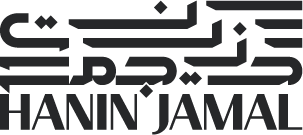In a world filled with diverse economic opportunities, Dubai stands as a primary gateway for growth and commercial expansion, especially through its free zones that offer an ideal environment for businesses and investors. However, these zones are not isolated from the ongoing regulatory changes aimed at enhancing the business environment. Effectively navigating these changes is what sets successful companies apart. How can businesses adapt to new regulations without disrupting their daily operations? What steps are necessary to ensure compliance while maintaining competitiveness? In this article, we explore best practices to turn these challenges into golden opportunities for growth and prosperity.

1. Understanding New Regulations and Their Business Impact
The first step to adapting to any legislative changes is to fully understand them. Dubai Free Zone Authority (DFZ) or other regulatory bodies often announce legal changes aimed at enhancing the investment environment, but these changes may require adjustments in internal policies or operations.
For the latest updates, businesses can consult the Dubai Legislative Portal , which provides current regulatory information for Dubai, including the free zones.
Tips:
- Follow official announcements and legal publications from free zone authorities.
- Consult legal experts to understand the practical implications of these changes on your business.

2. The Importance of Compliance with New Regulations
Compliance with laws is not merely a legal obligation; it’s an investment in the company’s reputation and operational sustainability. Non-compliance may lead to fines, business suspension, or even damage to the company’s relationships with partners and investors.
To further understand the regulatory framework, companies can explore the Dubai World Trade Centre Free Zone Regulations , which outlines compliance guidelines for businesses operating within the Dubai World Trade Centre’s free zone.
Benefits of Compliance:
- Builds trust with customers and partners.
- Avoids legal penalties.
- Enhances the company’s reputation in the market.

3. Assessing the Impact of Regulations on Daily Operations
Once the new regulations are understood, evaluate how they affect various aspects of the business. Will existing contracts be impacted? Is there a need to adjust hiring or pricing policies?
The UAE Government Official Portal provides detailed information on how free zone regulations affect company operations and offers resources for compliance.
Assessment Steps:
- Conduct a comprehensive analysis of internal operations.
- Identify areas requiring modifications.
- Develop a timeline for implementing these adjustments.
4. Developing Adaptation Strategies
After evaluation, planning and execution are key. Companies should devise clear strategies to adapt to changes while maintaining operational efficiency.
Effective Strategies:
- Update contracts and internal policies to align with new laws.
- Leverage technology to facilitate compliance, such as Enterprise Resource Planning (ERP) systems.
- Train employees on new policies and procedures.
5. The Role of Technology in Adapting to Regulations
Technology plays a pivotal role in helping businesses comply with regulations. Through advanced digital solutions, companies can streamline their operations and reduce human error.
Examples of Technological Solutions:
- Accounting software to ensure tax compliance.
- Document management systems to track licenses and certificates.
- Data analytics tools to assess risks and adapt to changes.
6. Building Strategic Partnerships
Businesses can enhance their adaptability by forming strategic partnerships with consultancy firms, lawyers, and companies specializing in legal compliance.
Benefits of Partnerships:
- Access to specialized expertise.
- Up-to-date legal advice.
- Reduced internal administrative burden.
7. Leveraging Workshops and Seminars
Dubai’s free zones offer numerous workshops and seminars aimed at helping businesses understand new regulations. Attending these events provides an opportunity for direct learning and networking with experts.
8. Periodic Compliance Reviews
Compliance is not a one-time process; it should be reviewed periodically to ensure continued adherence to regulations, especially as the legal environment evolves.
How to Conduct Reviews:
- Appoint an internal or external team for periodic reviews.
- Use checklists to ensure all required adjustments are implemented.
- Engage with regulatory bodies for continuous feedback.
Conclusion
Adapting to new regulations in Dubai’s free zones is an essential part of a company’s journey toward success and sustainability in a dynamic business environment. By understanding the laws, assessing their impact, and implementing effective strategies, businesses can turn these challenges into opportunities for growth and development. Remember, compliance is not just a legal procedure; it’s the key to building trust with clients and partners and ensuring a bright future for your business.
Mach X: Your partner in driving business growth and establishing successful companies with cutting-edge technology and innovative digital marketing solutions.


